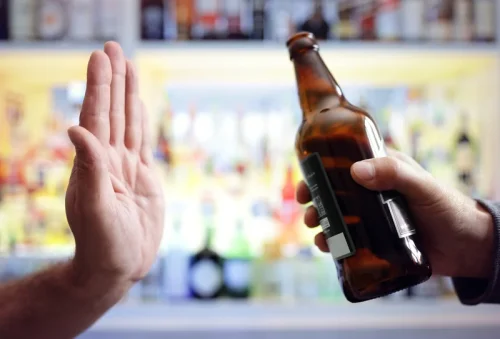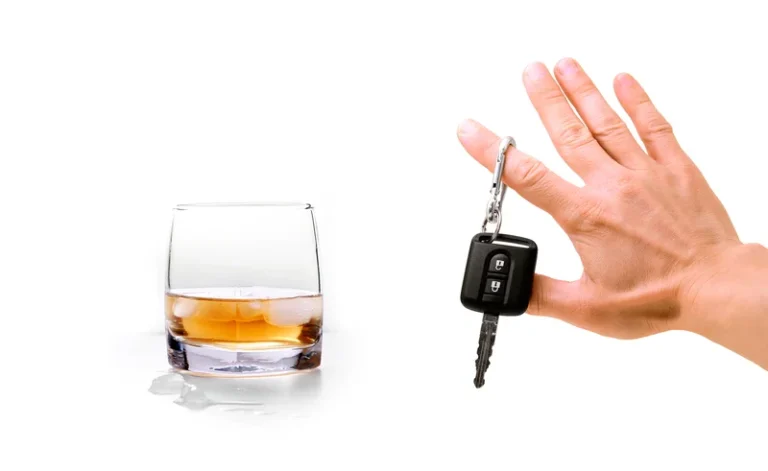
Alcohol tolerance (AT) is the key element that explains why one individual can consume large quantities of drinks with fewer negative effects while another individual feels overwhelming intoxication with small amounts of alcohol. The effects of drinking may vary from one person to the other, and the history of alcohol use plays a significant role in AT. High levels of alcohol in the blood due to tolerance can increase the permeability of the blood-brain barrier, allowing more of the drug to get into the brain. Alcohol can also reduce the activity of enzymes that break down drugs in the liver, causing them to build up to toxic levels.
How Long Does It Take To Get A Tolerance To Alcohol?

Alcohol withdrawal symptoms develop if someone who is dependent on alcohol (i.e. has alcohol dependence) stops drinking very suddenly, or goes too long without alcohol. Having a high tolerance to alcohol can you build a alcohol tolerance can also be a sign of an alcohol use disorder, also known as a pattern of alcohol abuse or alcohol addiction. Some research studies have suggested that ethnicity can affect alcohol tolerance.
Can Alcohol Tolerance Cause Withdrawal?
This method is used to prevent the development of alcohol dependence and alcohol abuse. This term refers to the capacity of the body to tolerate or support large amounts of alcohol. Due to chronic and excessive consumption by alcoholics, their bodies need more ethanol to produce the same effects that a new or non-frequent drinker would feel on taking standard units of alcoholic beverages. An individual who drinks regularly may find that it takes longer for them to achieve desired effects whenever they drink. This usually leads to drinking more than last time to achieve the same effect. The capacity to drink more and more is a serial development of high alcohol tolerance, which some people may perceive to be a good thing, but it is not.

How long will I have alcohol intolerance?

If you’d like to learn more about alcohol consumption, check out our in-depth interview with Julie Krizner. Knowledge is power, they say – a mantra which might not often be said with spicy food in mind, but which we think is a good fit nonetheless. Being able to tell chillies apart will give you confidence when looking at menus and give you a clearer idea of your starter spice level (and what to try next).
- If you don’t use a period of abstinence wisely, you face risks when you return to drinking.
- A similar effect was found with pretreatment with another NMDA receptor antagonist, ketamine (Khanna et al., 1992a).
- In a between-system adaptation, repeated alcohol administration recruits circuitry changes whereby other circuits (that generate opposing responses) are activated to oppose overactivity in reward circuits (Koob and Bloom, 1988).
- GABA binds to its receptors and opens a channel to a negative charge that slows down nervous system activity.
How can I learn to live with alcohol intolerance?
Some individuals have increased levels of this enzyme, while some do not. Alcohol intolerance doesn’t mean you become drunk faster or after drinking less alcohol. Often, people with alcohol intolerance drink less, because the symptoms they experience are so unpleasant. High alcohol tolerance is a state where an individual needs to drink relatively large amounts of alcohol before they become intoxicated.
- We drizzle chilli oil on our spiced carrot and red lentil soup, serve cauliflower fritters with a fermented chilli mayonnaise and finish a frozen tomato marinara margarita with chilli salt to add a kick of spice which isn’t overwhelming.
- This term refers to the capacity of the body to tolerate or support large amounts of alcohol.
The second-messenger enzyme protein kinase Cγ is involved in tolerance to opioids (Bailey et al., 2006) and has been shown to be involved in the initial effects of alcohol and development of rapid and chronic tolerance. Male and female C57BL/6J and 129/SvJ mice on a mixed genetic background with a null mutation of protein kinase Cγ did not exhibit rapid tolerance to alcohol’s hypothermic or sedative effects. The re-introduction of the null mutation rescued rapid alcohol tolerance in C57BL/6J mice. However, re-introduction of the null mutant in C57BL/6J and 129/SvEvTac mice on a mixed genetic background rescued rapid tolerance to the sedative but not hypothermic effects of alcohol (Bowers et al., 1999, 2000).

For individuals with a family history of alcoholism, this trigger point could be lower than others. Contrary to popular belief, drinking more alcohol won’t prolong a good feeling; .05 is still your peak buzz. If you are concerned that you may be struggling with an alcohol use disorder, there are many resources available to help. Behavioral therapies supported by medication management and healthy skill-building workshops are provided by comprehensive treatment programs all across the country. If you are struggling to lower your alcohol tolerance or recognize the need for further treatment, don’t hesitate to get the help you need.
Functional tolerance
Alcohol intolerance stems from genetic causes, the symptoms of which can appear at any time in life. This deficiency affects 8% of the world’s population, but is much more common in people of East Asian descent (at 35-40% of the Asian population). This is why it is sometimes referred to as “Asian glow” or “Asian flush.”1 The most common symptom is facial redness—which explains the nickname—but intolerance can also cause a rapid heartbeat, nausea, and headaches. One study found that subjects who knew they would receive money for the successful performance of a task while under the influence developed tolerance more quickly than when they did not expect a reward. Functional tolerance is when the brain functions of drinkers adapt to compensate for the disruption that alcohol causes in their behavior and their bodily functions.
Functional Tolerance Can Result in Dependence
Continued alcohol use due to tolerance causes brain changes that affect how the brain responds to alcohol. Alcohol interacts with the reward system in the brain, which regulates pleasure and motivation. The brain’s adaptation to alcohol due to tolerance can make one less sensitive to alcohol, leading them to drink more. In addition, tolerance can also lead to dependence and uncomfortable withdrawal symptoms when the person stops drinking. These symptoms may lead them to drink again, potentially creating a cycle of alcohol addiction.
Is alcohol tolerance genetic?
L-tryptophan is the precursor of 5-hydroxytryptaminne (5-HT; serotonin) and increases 5-HT levels in the brain. On day 7, they were pretreated with L-tryptophan or saline 30 min before receiving the first dose of alcohol or saline. On day 8 (day 2 of alcohol exposure), rats that received chronic L-tryptophan treatment exhibited an increase in rapid tolerance to alcohol in the tilt-plane test. https://ecosoberhouse.com/ Male rats that were intracerebroventricularly treated with nitric oxide donors developed greater rapid alcohol tolerance in the tilt-plane test (Wazlawik and Morato, 2003). Nitric oxide synthase inhibitors that were administered before but not after alcohol administration also blocked the enhancement of rapid tolerance by the NMDA receptor agonist cycloserine (Khanna et al., 1995a).
